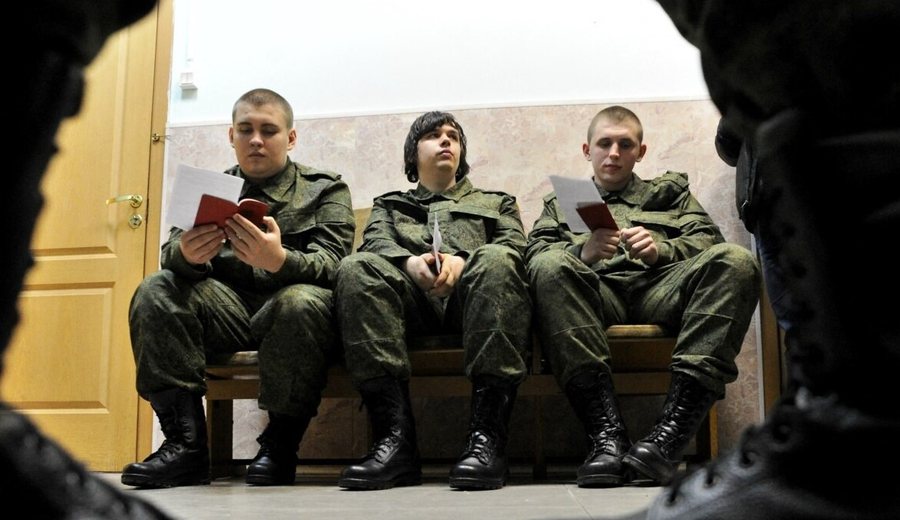
In December 2023, Alexander from the Siberian city of Ulan-Ude, like tens of thousands of 18-year-old boys across Russia, was called up for compulsory military service in the Russian army.
Four months later, some 7,000 kilometers to the west, he found himself digging trenches along Russia's border with Ukraine. Not long after, he was forced to hide in those same trenches, facing Ukrainian troops and drone attacks.
"It turns out that they sent me to a war zone against the law, without asking me at all," he said in an interview with Radio Free Europe last month, A2 reports.
The case of Alexander - who asked that his last name not be published to avoid prosecution by the police - highlights an extremely sensitive topic in Russian politics, which President Vladimir Putin has steadfastly avoided since launching the invasion of Ukraine in February 2022.
With the invasion entering its 40th month, Russian troops are facing heavy losses: over 750,000 killed and wounded, according to Western estimates — and the number continues to rise as the spring fighting intensifies.
However, Russia has maintained the intensity of operations through a complex recruitment system involving mobilized reservists, volunteers, private mercenaries, prisoners, and regular units. High salaries and benefits for war service have brought a steady flow of men to the front.
But Russian law prohibits sending conscripts – mostly young men around the age of 18 – to war zones. This means, first and foremost, Ukraine.
Putin has repeatedly promised that conscripts will not be sent to fight. They are allowed to engage in logistical or construction tasks away from the front lines.
However, after just four months of basic training, recruits can be pushed or forced to sign voluntary contracts for full military service – including combat participation. Activists and advocates say recruits often do not fully understand what they are signing.
Last summer, Ukrainian troops crossed the border into Russia's Kursk region, overwhelming weak border defenses. During the attack, many recruits were captured or went missing; at least 25 were killed, according to investigative media outlet Vyorstka.
Alexander was lucky not to be among them.
Military prosecutors and officials at the local recruitment center were not available to comment on his case.
"We dug trenches and then just stood there"
Alexander, who spoke to Radio Free Europe from the Yaroslavl region, northeast of Moscow, said he was recruited in the fall of 2023 and called up for service in December, where he was initially stationed in the Amur region, near the border with China.
He joined the Railway Corps unit – a logistics force that manages the Russian military railway network.
"As for the training, we did a few shootings and that was it. There was no special training," he said.
In April 2024, an unknown number of recruits from his base were sent to Bryansk, a region bordering Ukraine.
Initially, he and his group of eight were ordered to build bunkers for the Border Guard. According to him, they did not see any volunteer soldiers (known as “kontraktiki”) or mobilized soldiers (known as “mobiki”).
"When we were deployed, there was no one else but recruits. Even our squad commander was like us, except he had studied at a military school before the army," he said.
On August 6, when Ukrainian troops broke through to the Kursk region, Alexander’s battalion was in Bryansk. “We quickly dug small trenches and then just stood there. That’s it!” he recalls.
According to him, senior officers ordered the recruits to position themselves on the front line, near the border, while behind them were professional soldiers and better equipment.
Recruits were forbidden from retreating without orders – even if attacked.
"On one occasion we stood under artillery fire for several hours. We were on a reconnaissance mission when Ukrainian forces came out. We couldn't run away, because even our own would shoot us so as not to betray our position. We lay down and waited for several hours," he said.
A Ukrainian suicide drone exploded near his position, causing him a concussion – the fifth in a row.
Gray area for recruits
Russian officials continue to deny what is now an open secret among soldiers' families: that recruits have been involved in combat, intentionally or unintentionally.
The law allows recruits to sign contracts and become paid soldiers after four months of service – which legally allows them to be sent to war.
But there are numerous reports that the military forces or deceives recruits into signing contracts, without providing them with clear information or legal warnings.
In October, several recruits from a tank division in Russia received compensation of 305,000 rubles (about $3,600) after reporting that they had signed forged contracts with the Ministry of Defense.
That same month, Aleksandr, who had not signed a voluntary contract, was wounded again, this time by a drone fragment that hit him in the left leg. He was transferred from the front line and admitted to a military clinic in Borzia, where he had originally been sent.
According to him, military doctors were reluctant to diagnose his injury because of his status as a conscript – which would have been a legal violation. This left him ineligible for compensation for war wounds.
He was discharged from service on December 10, 2024 – exactly one year after he had entered the army.
"At first I couldn't walk at all," he said. "I just limped. Then I got better a little, bought a cane, and at least I started walking."
"They kept me in the hospital until demobilization. I remained disabled. Even without money," he adds. "I also have panic attacks. When I hear loud noises, I immediately start looking for drones with my eyes."
Now, Aleksandr says he will file an official complaint with the Military Prosecutor's Office to seek recognition of his involvement in the fighting and compensation for the injuries he sustained./ REL
(A2 Televizion)










